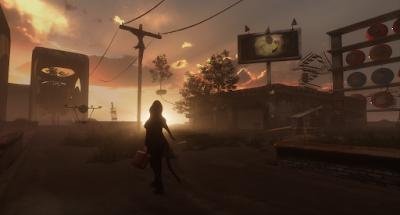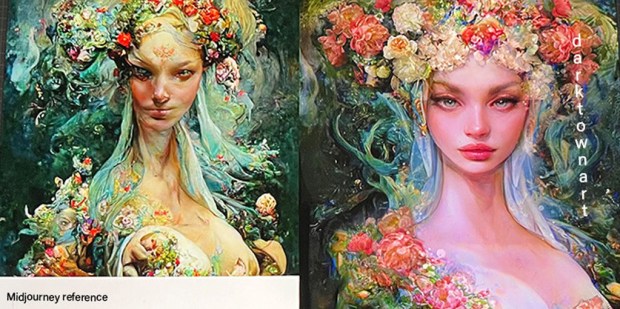The Golden Age of the Russian Avant-Garde
 |
| meatspace exhibit |
On Sunday the 27th of April at 1pm second life time, a
collaborative Second Life work will open which is part of a larger exhibition
being held in the main exhibition hall of Moscow’s
Manege Museum.
Peter Greenaway (UK) and Saskia Boddeke/Rose
Borchovski (Holland) supported by the British Council have created a unique
experience fusing a variety of visual forms.
The virtual world exhibition is featured on four interactive viewing
stations within the Museum and was created by Alpha Auer (Turkey), Bryn Oh (Canada),
Caer Balogh (USA), Eupalinos Ugajin (France), Jo Ellsmere (USA), Nessuno Myoo (Italy)
and Soror Nishi (UK).
The virtual world region is provided by the Linden Endowment
for the Arts.
 |
| Alpha Auer |
More than 1,000 artworks, borrowed from galleries and
private collections around the world, are being displayed as part of the
exhibit. The exhibition will spread across 5000 square metres. It will include
polyscreen installations made with the help of the most up-to-date projection,
light and sound equipment. It will represent a new approach to the history of
art, combining film and painting, animation and 3D virtual world technology
helping to create a unified atmospheric work, drawing the viewer into the space
of Russian avant-garde.
A Russian news segment on the project.
 |
| Bryn Oh - Tatlin's Tower |
Constructivism was an artistic and architectural movement in
Russia from 1914 to 1924 which dismissed "pure" art in favour of art
used as an instrument for social purposes, namely, the construction of the
socialist system. The term Construction Art was first used as a derisive term
by the painter Kazimir Malevich to describe the work of artist/graphic designer
Alexander Rodchenko in 1917, first appearing as a positive term in Naum Gabo's
Realistic Manifesto of 1920. Kazimir Malevich also worked in the constructivist
style, though he is better known for his earlier suprematism. Some other
important artists and designers of the movement are El Lissitzky (art,
architecture and graphic design), Sergei Eisenstein (cinema), Wassily Kandinsky
(artist - painter), Valdimir Tatlin (artist/architect), Lyubov Popova
(artist/stage designer), Alexander Vesnin (architect) and Varvara Stepanova
(artist/designer).
 |
| Bryn Oh -Boys in the sandbox |
As a part of the early Soviet youth movement, the
constructivists took an artistic outlook aimed to encompass cognitive, material
activity, and the whole of spirituality of mankind. The artists tried to create
art that would take the viewer out of the traditional setting and make them an
active viewer of the artwork. Their output covered a wide range of both art and
design, as well as architecture - ranging from theater, film and photography,
from fashion design to graphic design, as well as to fine art such as painting
and sculpture. Alongside involving themselves in designs for the fledgling
Soviet industry, the Constructivists also worked on public festivals and street
designs for the post-October revolution Bolshevik government.

The constructivists tried to create works that would make
the viewer an active participant of the artwork. This premise was tested in
theatre, particularly through the work of Vsevolod Meyerhold, who had developed
a 'biomechanical' acting style, which was influenced both by the circus and by
the 'scientific management' theories of Frederick Winslow Taylor. Meanwhile the
stage sets by the likes of Vesnin, Popova and Stepanova tested Constructivist
spatial ideas in a public form.
 |
| Nessuno Myoo |
The movement was strongly fostered by the early Soviet
regime, particularly by its leaders, Lenin and Trotsky. However, after Lenin's
death in 1924 and Stalin's subsequent rise to office, Constructivism came to an
end in the mid-1920s. Many Constructivist artists and designers were forced to
emigrate from Russia under Stalin's rule, and those who remained had no choice
but to succumb to his expectations of art and design as tool for his propaganda
machine.









Comments
спасибо!